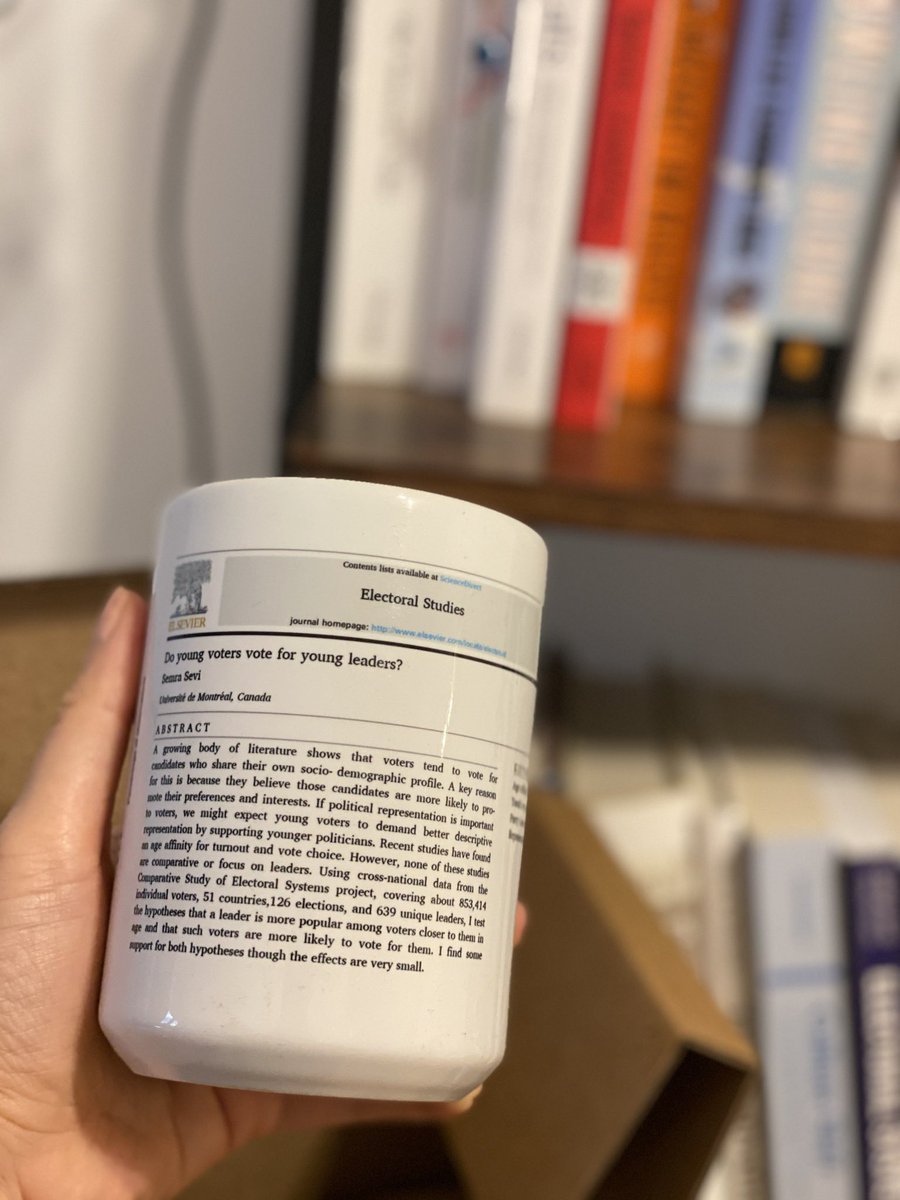
Semra Sevi
@semrasevi
Followers
7K
Following
8K
Media
54
Statuses
539
Assistant Professor of Political Science @UofT
Joined September 2016
My parents sent me this mug with the abstract of my first solo publication. Such a cool gift! #phdlife #AcademicTwitter @ElectoralStdies
167
729
11K
We thank all the Members of Parliament who spoke with us, including the Hon. @TonyclementCPC, Hon. @beynate, Mr. @AMacGregor4CML, Hon. @ThomasMulcair, Hon. @BobRae48, and the Office of Private Members’ Business at the House of Commons. 🙏 . @HoCChamber @OurCommons.
0
0
1
🚨NEW PAPER: Do legislators trade favours?. My latest with Donald Green uses a natural lottery in the Canadian Parliament to test whether MPs return favours when others support their proposals. Our findings may surprise you.👇. @PSRMJournal @UofT_PolSci
1
5
35
RT @YamilRVelez: Excited to share a new working paper with @SemraSevi and Don Green. We built a chatbot-based Voting Aid Application (VAA)….
0
20
0
What changed?. When party labels appeared on ballots, voters relied more on partisan cues than indiv. candidate familiarity. Result? The personal edge of incumbents disappeared. Party > Person. Link: @UofT_PolSci @CJPS_RCSP @spaikin @acoyne @davidakin.
3
6
9
FINDING #2: Party matters more than person. Incumbency advantage: .Liberals pre-1972: +16 pts.Conservatives pre-1972: +8 pts (not significant).Post-1972: Both parties? Advantage vanishes.
1
0
2
Using data from 1867 to 2021, and a RDD, I estimate the causal impact of incumbency on electoral success. FINDING #1: The incumbency advantage shrank dramatically. ✅ Before 1972: Incumbents had a 15-point edge. ❌ After 1972: Just 2 points, and no longer significant.
1
0
4
RT @UofTArtSci: #UofTArtSci students joined @globalnews on election night, working behind the scenes in the newsroom to help call live resu….
0
4
0
RT @UofTArtSci: Just days after Canadians elected Liberal leader Mark Carney as Prime Minister, the mix of victories, upsets and expected o….
0
4
0
Behind the scenes on election night with my students at the Global News Decision Desk, calling the results into the wee hours! A newsroom experience they’ll never forget! Thanks, @davidakin & @globalnews! Cc @UofT_PolSci @UofT #cdnpoli #CanadaElections2025
5
2
25
Can AI reduce prejudice? 🇺🇸 In our new preprint, GPT-4o moved the needle on trans rights in a national U.S. study using morally tailored messages. The shift was real and short-lived. For more, read 👇 Comments and feedback are welcome.
Prejudice is common in modern societies. Reducing that prejudice is difficult to do, particularly in a cost-effective and scalable manner. Can AI help solve this problem?. My new working paper with @semrasevi, @mitchellbosley, and Crabtree examines this question!. To do so, we
1
6
17
RT @JohnHolbein1: Prejudice is common in modern societies. Reducing that prejudice is difficult to do, particularly in a cost-effective a….
0
19
0












